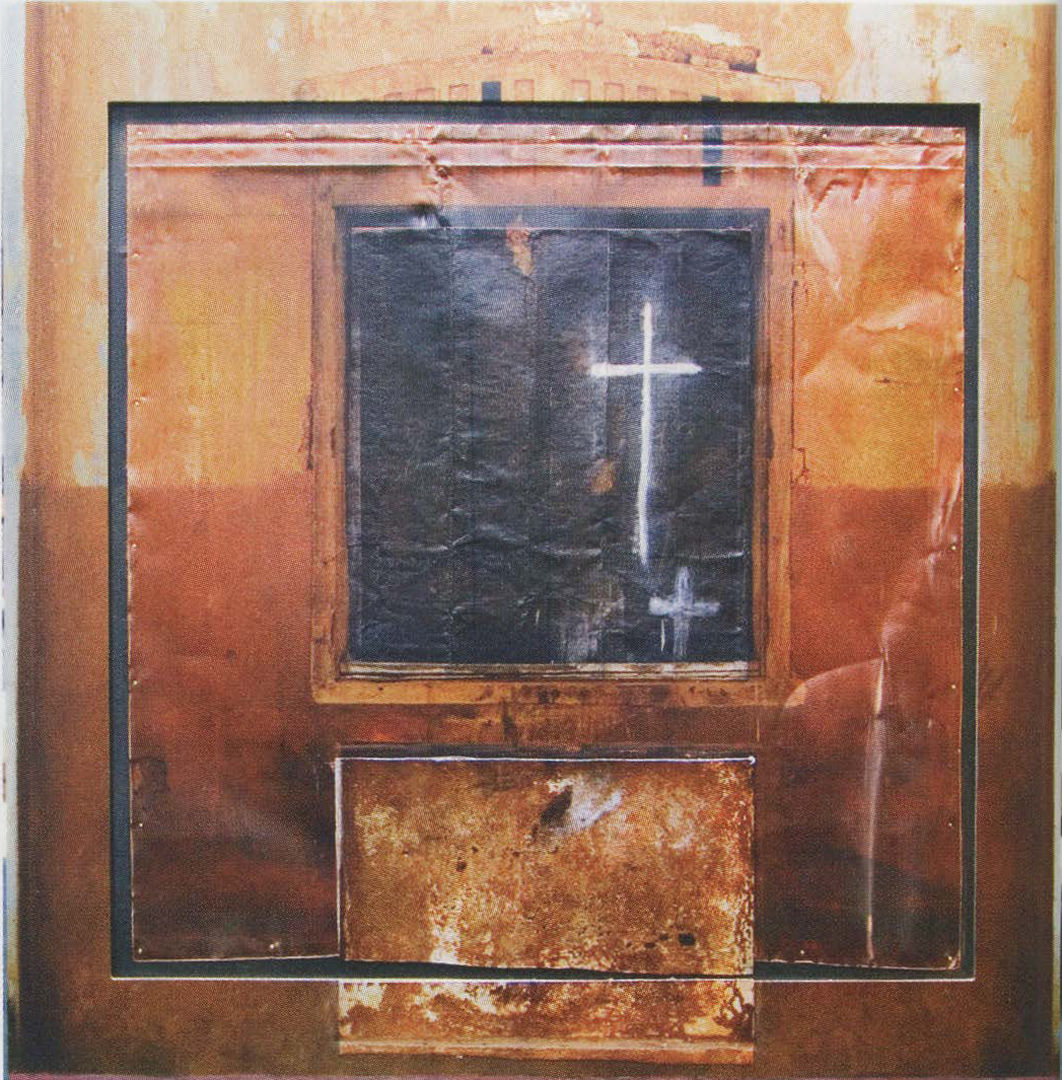Dorothy Simpson Krause: Margoa
Artist(s):
Title:
- Margoa
Exhibition:
Medium:
- Digital mixed media
Size:
- 24" x 24"
Category:
Artist Statement:
I am a painter by training and collage-maker by nature who began my experimental printmaking with reprographic machines. Since being introduced to computers in the late 1960s while working on my doctorate at Pennsylvania State University, I have combined traditional and digital media. My work includes large-scale mixed-media pieces, artist books, and book-like objects that bridge between these two forms. It embeds archetypal symbols and fragments of image and text in multiple layers of texture and meaning. It combines the humblest of materials (plaster, tar, wax and pigment) with the latest in technology to evoke the past and herald the future. My art making is an integrated mode of inquiry that links concept and media in an ongoing dialogue, a visible means of exploring meaning.
Village and Margoa are components of Passages, a series that includes doors, windows, tunnels, openings, corridors. The term also encompasses movement from one place to another, the transition from one condition or state to another, and the right or permission to come and go freely. We speak of passing time, safe passage, and “passing over” or dying. These images reference those varied meanings as well the barriers that prevent us from coming and going at will.
Technical Information:
Village and Margoa are mixed media assemblages. The digital files were printed onto clear film, which were used as templates for building assemblages. In Village, for example, a small piece of aluminum (positioned to correspond to a window in the image file), was placed under a recycled brass grid which was nailed to wood and washed with plaster. The assemblage was used as the substrate onto which the image file was printed using a Durst UV-cured flatbed printer.
With UV-curing flatbed printers, the ability to print on virtually any dimensional surface without pre-coating offers an enormous range of possibilities. Prints are equally good on surfaces with combinations of porous and nonporous or matte and shiny materials, and UV-cured inks sit on the surface of the print with the physicality of paint or traditional printmaking inks.
All Works by the Artist(s) in This Archive:
- Dorothy Simpson Krause
-
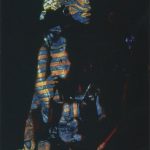
Blue Madonna
[SIGGRAPH 1994] -
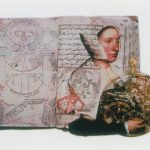
Anatomy Lesson
[SIGGRAPH 1994] -
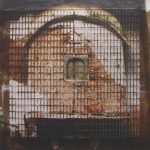
Village
[SIGGRAPH 2006] -
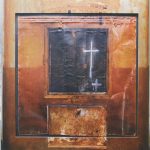
Margoa
[SIGGRAPH 2006] -
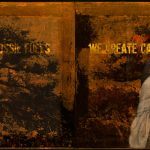
Losing Ground
[DAC Online Exhibition 2015] -
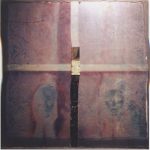
Strapped
[SIGGRAPH 2003] -
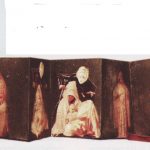
Vengeance is Mine
[SIGGRAPH 2003]

